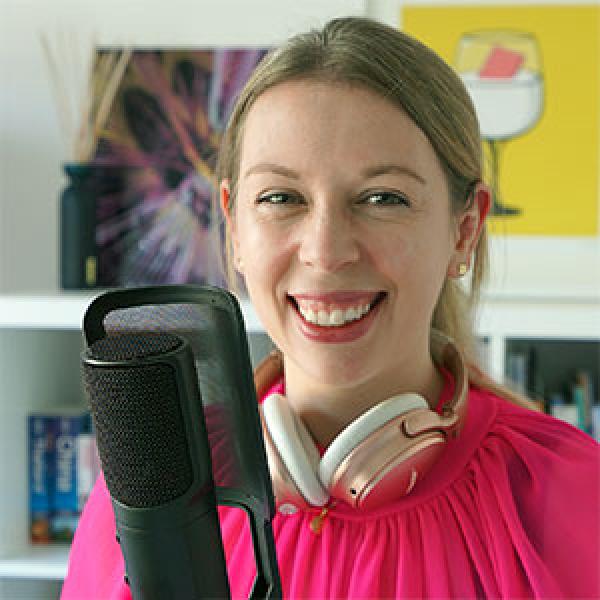10th March 2020
When I graduated from university and took on a 10-month teaching contract at a college in Guangzhou back in 2009, I never thought that teaching English would turn into a long-term career path for me. I originally planned to spend a year teaching abroad to gain work and life experience, as well as use the time to figure out what I wanted to do. What’s more, I had never considered teaching English to speakers of other languages (also known as TESOL or TEFL) as a field that I would be able to progress in as my education and work experience focused on modern history and theatre, and had absolutely nothing to do with linguistics and education. Aside from a brief time, when I had considered becoming a secondary school history teacher in the UK, working in education had not been part of my career plan.
Fast forward ten years, I’m now a director of a team of trainers who build and deliver training courses for new and experienced teachers in TESOL, ESOL exams, and drama. What was originally intended to be a year’s work experience turned out to be a job that I enjoyed, found meaningful, and was able to grow my skills and knowledge in. I realised early on in my TESOL career, that while I didn’t have a background in linguistics or education, this could be built through independent and guided studies over time. An effective teacher after all is someone who invests in their lifelong learning, reflects regularly on the progress of their learners and how they can best support them, as well as enjoys interacting with others to support their development.
I’m sharing my story because people often assume that a successful career in teaching English, and the wider TESOL industry overall, cannot begin without having initially attained all the formal qualifications and experience. While studying a degree in applied linguistics followed by a teaching qualification is one path into education, it is not the only one. As a result, there are many people I meet who are interested in teaching English and possess the core qualities, but are held back by the following concerns:
1. “I was never taught grammar in school.”
Neither was I. Aside from covering the basics of word classes, which I never remembered or referred to, my education in English focused primarily on the study of literature and writing for different purposes. Unless you studied English as your second language, attended an independent school, and/or studied linguistics as one of your subjects, chances are that your experience in studying English grammar during your primary and secondary education is like mine. As intimidating as grammar as a subject may seem, it is something that you can easily build over time by:
• Taking a short language awareness course.
• Attending introductory workshops
• Reading books related to TESOL / TEFL
• Watching online videos on grammar
• Researching before you teach a lesson
• Talking to colleagues about lessons
Even after studying linguistics as part of my Diploma in TESOL, I still do research when lesson planning by using grammar reference books and by talking to my colleagues. Researching language for a lesson, sharing ideas with fellow teachers, and trying new approaches and activities are part of an essential skillset in teaching that is more sustainable than simply attempting to understand all there is to know about English grammar – an arguably impossibly dull task in my opinion.
2. “I don’t have any classroom experience.”
A misconception that many people have is that teaching and learning experience only seems to count when held in a formal school setting. While experience in working in a school (whether it is part of a voluntary placement or simply to observe a few lessons) is useful, it is not the only form of experience that is valuable. For example, you may have experience in mentoring staff in your current workplace, helping train new people who join your team, or tutoring students in your community to support them with their homework etc. Taking a few minutes to reflect on the following points below can help in identifying relevant experience you may have, as well as whether you would enjoy a career in teaching.
Think about a time when you have:
a) Helped another person develop their knowledge and/or skills
b) What you did to support them
c) To what extent the learning objectives were achieved
d) What you learnt about the process
i.e. What worked well and why? What would you do differently and why?
3. “I don’t want to risk quitting my current job.”
If you want to study the Certificate in TESOL, but not at the expense of using all of your annual leave from work or the risk of quitting your job to study the four-week full-time course, then you could apply for the part-time course. The part-time course divides the workload of the CertTESOL over 10-12 weeks with studies taking place in the evenings on Tuesdays and Thursdays, as well as teaching practice during the daytime on Saturdays. Trainees who apply for the part-time course often want to fit their studies around their full-time work, so that they can retain an income while taking steps towards building the knowledge, skills and confidence to start a career in TESOL. Starting your teaching career on a part-time basis is also a popular choice thanks to the huge demand for online teachers. This means you can teach students anywhere in the world without the stress of leaving your home country.
If you’re unsure about taking the CertTESOL, then you could opt for the self-paced 20-hour Online CertTESOL Starter course, which equips you with a foundation in TESOL, grammar, and phonology that can be carried over to the CertTESOL course if you decide to continue your studies. The CertTESOL Starter consists of a mix of podcasts, videos, quizzes, reflective tasks and lesson observations (all online) that you can study in your own time to gain a thorough insight into what a career in TESOL could be like.
4. “It’s been a long time since I studied anything.”
People from all walks of life take the CertTESOL course – recent high school graduates, people wanting to change their career, stay-at-home parents, retirees, people interested in becoming freelance online teachers, practicing teachers of other subjects who want to add TESOL to their repertoire etc. From my experience in training teachers on CertTESOL courses since 2015, trainees who have recently graduated have no advantage over those who haven’t studied for some time as everyone faces the new challenge of writing lesson plans and reflective journals. Furthermore, as our course is a combination of online self-paced learning, live webinars and face-to-face assessment, this is often a new experience for everyone enrolled on the course. Whether you’re anxious about writing assignments or studying online, or both, we provide training for every step to set you up for success on the course and beyond.
5. “I don’t have a degree.”
You don’t need to have a degree to apply for the CertTESOL. Instead you need to demonstrate that you can study at undergraduate level through your work and/or education experience. This is something that we assess during the interview process to ensure that anyone we accept onto the CertTESOL course is ready for it. Depending on where you want to teach and the type of teaching work you want to pursue a degree may or may not be relevant. It is therefore a good idea to research the places you are interested in teaching to find out whether a degree is required as part of the job and/or immigration requirements.
Note from the writer: This blog is dedicated to ‘Steve from Northampton’, who is interested in studying TESOL and in making a career change. I hope this blog addresses some of the hesitations you have about taking the next steps towards your new career path.
If you want to learn more about a career in TESOL, join one of our upcoming teacher training workshops which are held online and in-house at our Hong Kong training centre.



